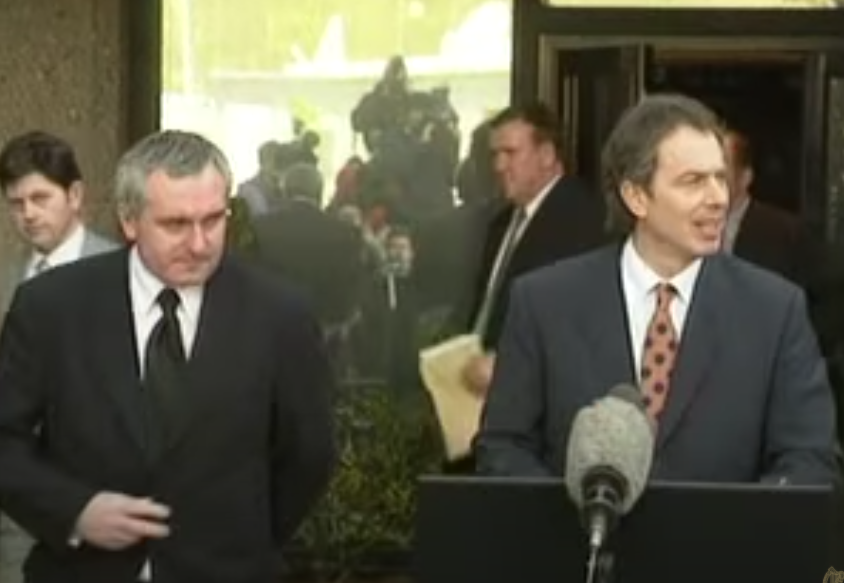By signing the Good Friday Agreement 23 years ago the UK made Brexit hard if not impossible

This was deisgned to operate with both the UK and the Irish Republic in the EU
As is being widely there is a huge impasse between London and Brussels over the position of Northern Ireland. The real problem is that that the basic premise of the deal that brought peace to Northern Ireland in 1998 was that both countries would remain within the EU.
I have referred here to an article written a couple of years ago by John McTernan, Tony Blair’s former director of political operations, which sought to set out clearly why the Northern Ireland border has been such an issue in the Brexit negotiations. He wrote:
“.. there is no concession that can be given on the backstop or, as it should properly be considered, Northern Ireland. The fundamental problem here is not the intransigence of the Irish government not the trickery of the European Union. It is, put bluntly, because the UK is bound by a peace treaty – the Good Friday Agreement – which ended the 30 years warfare of the Troubles.
The agreement saved lives, and is still saving them, and it dealt with the border – the source of the conflict – in an extraordinary act of imagination. It dissolved it. Not merely within the operation of the EU Single Market but by the UK government repealing the act that partitioned the island of Ireland and by agreeing that the people of Northern Ireland could choose either a British or an Irish passport..”
No amount of clever wording can get around this – Brexit is incompatible with the GFA.
An issue for the UK government is the involvement at the time of the US government in making this happen. Biden has already made his views known.
Quite where this goes from here is hard to say. BoJo is a prisoner of history.
Mike Smithson
UPDATE: These are the markeThis market relates to whether the UK government re-introduces any legally enforceable restrictions on social contact in England related to the spread of coronavirus, following the legal end of restrictions on social contact (currently expected to take place on 19 July 2021). Examples may include, but are not limited to, the mandatory wearing of face masks on public transport or the closure of pubs/nightclubs. For the purposes of this market, restrictions will not include any regulations on international travel or any regulations related to self-isolation or quarantine. For the purposes of this market, ‘re-introduce’ does not require any restrictions to exactly replicate previous restrictions. If the UK government does not end restrictions on social contact in 2021, and thus could not ‘re-introduce’ restrictions, this market will be void. Dates in this market relate to when any restrictions come into force in England, rather than the date on which they are announced. All times and dates in this market are in UK time. Clarification (14 July 2021): This market refers to mandatory England-wide measures introduced by the UK government. Any measures that are introduced locally or by individual companies (e.g. Transport for London only) will not count towards the settlement of this market. Clarification (6 September 2021): If ‘vaccination passports’ are required for entry to nightclubs or other events, this market will be settled for yes, so long as the measure satisfies the other conditions in the market rules, i.e. that it is mandatory, implemented by the UK government, England-wide and legally enforceable. Clarification (12 October 2021): If vaccines become mandatory for people working in care homes at any point in 2021 (https://www.gov.uk/government/publications/vaccination-of-people-working-or-deployed-in-care-homes-operational-guidance/coronavirus-covid-19-vaccination-of-people-working-or-deployed-in-care-homes-operational-guidance) this market will be settled for yes, so long as the measure satisfies the other conditions in the market rules, i.e. that it is mandatory, implemented by the UK government, England-wide and legally enforceable.